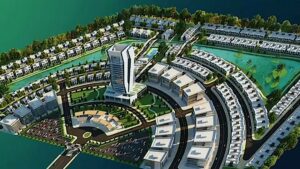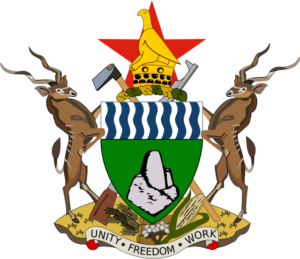CLAIM: ‘Zimbabwe is third happiest country in Africa according to the 2024 Mental State of the World Report.’
SOURCE: NewZimbabwe.com
VERDICT: Misleading
On 15 March 2024, NewZimbabwe.com, an online publication posted a message on its X (formerly Twitter) account claiming that Zimbabwe is the third happiest African country’. The claim further states that this is ‘according to the 2024 Mental State of the World Report’.
StarFM, a local radio station, also posted a similar message on its X account – @StarfmZimbabwe – as well, placing Tanzania and Nigeria respectively, ahead of Zimbabwe in the list of happiest countries in Africa.
Other individual X accounts such @matigary also posted the similar claim attracting mainly negative and sarcastic responses with some Zimbabweans questioning how the country could be considered happy when it is going through many economic hardships. One X user @ckwaraz, said: ‘Nothing can be further from the truth. What could possibly make us happy with highest world inflation, a non functional health delivery system, where women giving birth buy their own cotton, betadine, pain killers, where prices are changed in supermarkets every three days.’ Another X user, Samuel Lazaro (@Laza17766Lazaro) said, ‘Do they realy (sic) know the meaning of happiest?’
According to the Mental State of the World in 2023, a publication of the Global Mind Project, published on March 4, 2024, Zimbabwe with an average Mental Health Quotient (MHQ) of 74, is ranked number 24 out of 71 countries surveyed across the world. In Africa, the country is in position three after Tanzania (88) and Nigeria (83) respectively.

The MHQ, developed at Sapien Labs, is a unique comprehensive assessment of mental well-being comprising 47 elements of mental feeling and function including both problems that include symptoms of 10 major disorders as well as positive aspects of mental function. The online tool, therefore, uses these elements to provide an aggregate score to position individuals on a spectrum from Distressed to Thriving, as well as sub-scores across six broad functional dimensions namely mood and outlook, drive and motivation, cognition, social self, mind-body connection and adaptability and resilience.
The Mental State of the World Report describes mental well-being as follows: ‘Mental well-being reflects our mental capability and functioning, as well as our ability to navigate and cope with life’s stresses. It is not the same as happiness or life satisfaction.’ One could, for instance, be going through very difficult or sad circumstances in life but have all the capabilities to cope as best as one could, and therefore have a high level of mental well-being.
Mental well-being is measured using the MHQ assessment, which positions individuals on the spectrum from Distressed to Thriving, spanning a possible range of scores from −100 to +200 where negative scores indicate a mental well-being status that has a significant negative impact on the ability to function. In the 2023 survey, a total 518,064 respondents from around the world completed the MHQ assessment between 1st January and December 31st 2023 and data was acquired by recruitment of participants through digital ads targeting a broad range of demographics.
Among the key findings of the study is that mental wellbeing has remained steady across almost all countries since 2021 while the rankings have also remained relatively steady. Only five countries moved up the mental wellbeing scale by 2% or more while four moved down by 2% or more. Countries at the top of the list are largely Latin American and African countries such as Tanzania, Nigeria, Zimbabwe, Venezuela, and the Dominican Republic, while the wealthier countries of the Core Anglosphere such as the United Kingdom and Australia are towards the bottom.
‘This runs counter to our common perception that wealth enhances wellbeing,’ says the report in part.
‘In our annual report for 2021 we showed that the average mental wellbeing scores of the Internet-enabled populations of countries were strongly and significantly negatively correlated with economic metrics such as per capita GDP and even the Human Development Index.’
Internet-enabled populations in wealthy countries, according to the report, are also likely to have youth on smartphones, ultra-processed food and weak social ties; three factors that have been linked to poor mental health.
According to the World Health Organisation (WHO), mental health is a ‘state of mental well-being that enables people to cope with the stresses of life, realize their abilities, learn well and work well, and contribute to their community. It is an integral component of health and well-being that underpins our individual and collective abilities to make decisions, build relationships and shape the world we live in.’
In 2022 Zimbabwe was ranked number 15 (75.8 average MHQ) globally, and fourth in Africa after Tanzania, Nigeria and the Democratic Republic of Congo respectively. In 2020 and 2021, the surveyed countries excluded Zimbabwe.
However, when it comes to happiness, Zimbabwe does not fare as well. According to Statista Zimbabwe was in 2022 ranked the most miserable country in the world.
The 2024 World Happiness Report (WHR), covering the period 2021-2023, places Zimbabwe almost at the bottom of the list of country rankings by life evaluations, in position 138 out of 145 countries surveyed, an indication, that Zimbabweans are an unhappy lot. Trailing behind Zimbabwe are DRC, Sierra Leonne, Lesotho, Lebanon, and Afghanistan respectively. The top five happiest countries according to the same study are Finland, Denmark, Iceland, Sweden, and Israel respectively. The WHR is a publication of the Wellbeing Research Centre at the University of Oxford, United Kingdom.

Conclusion
The claim ‘Zimbabwe is the third happiest country in Africa according to the 2024 Mental State of the World Report,’ has been rated as misleading. The Mental State of the World Report has been misinterpreted by the media to mean ‘happiness’ yet those who conducted the research have warned that, ‘It is not the same as happiness or life satisfaction,’ explaining that ‘Mental well-being reflects our mental capability and functioning, as well as our ability to navigate and cope with life’s stresses.’ Findings on Zimbabwe in particular reflect that the majority of Zimbabweans are managing to cope with challenges they are going through and not necessarily that they are happy. On the other hand, the recent World Happiness Report places Zimbabwe almost at the bottom of the list of happy countries.







